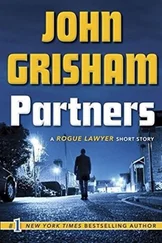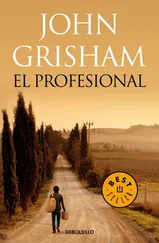John Grisham - A time to kill
Здесь есть возможность читать онлайн «John Grisham - A time to kill» весь текст электронной книги совершенно бесплатно (целиком полную версию без сокращений). В некоторых случаях можно слушать аудио, скачать через торрент в формате fb2 и присутствует краткое содержание. Жанр: Детектив, на английском языке. Описание произведения, (предисловие) а так же отзывы посетителей доступны на портале библиотеки ЛибКат.
- Название:A time to kill
- Автор:
- Жанр:
- Год:неизвестен
- ISBN:нет данных
- Рейтинг книги:3 / 5. Голосов: 2
-
Избранное:Добавить в избранное
- Отзывы:
-
Ваша оценка:
- 60
- 1
- 2
- 3
- 4
- 5
A time to kill: краткое содержание, описание и аннотация
Предлагаем к чтению аннотацию, описание, краткое содержание или предисловие (зависит от того, что написал сам автор книги «A time to kill»). Если вы не нашли необходимую информацию о книге — напишите в комментариях, мы постараемся отыскать её.
A time to kill — читать онлайн бесплатно полную книгу (весь текст) целиком
Ниже представлен текст книги, разбитый по страницам. Система сохранения места последней прочитанной страницы, позволяет с удобством читать онлайн бесплатно книгу «A time to kill», без необходимости каждый раз заново искать на чём Вы остановились. Поставьте закладку, и сможете в любой момент перейти на страницу, на которой закончили чтение.
Интервал:
Закладка:
"Let's make some margaritas," said Harry Rex.
"No!" said Jake.
"It'll take the edge off."
"Not me," said Ellen. "This is business."
Harry Rex unwrapped a biscuit, the last of the sack. "What happens first today?"
"After the sun comes up, we start the trial. At nine, Noose will say a few words to the jurors and we start the selection process."
"How long will it take?" asked Ellen.
"Two or three days. In Mississippi, we have the right to interrogate each juror individually in chambers. That takes time."
"Where do I sit and what do I do?"
"She certainly sounds experienced," Harry Rex said to Jake. "Does she know where the courthouse is?"
"You do not sit at counsel table," said Jake. "Just me and Carl Lee."
She wiped her mouth. "I see. Just you and the defen-
dant sitting alone, surrounded by the forces of evil, facing death alone."
"Something like that."
"My father uses that tactic occasionally."
"I'm glad you approve. You'll sit behind me, next to the railing. I'll ask Noose to allow you into chambers for the private discussions."
"What about me?" asked Harry Rex.
"Noose doesn't like you, Harry Rex. He never has. He'd have a stroke if I asked if you could go in chambers. It'd be best if you pretended we'd never met."
"Thanks."
"But we do appreciate your assistance," Ellen said.
"Up yours, Ellie Mae."
"And you can still drink with us," she said.
"And furnish the tequila."
"There will be no more alcohol in this office," Jake said.
"Until the noon recess," said Harry Rex.
"I want you to stand behind the clerk's table, just loiter about like you always do, and take notes on the jury. Try to match them with the notecards. There'll probably be a hundred and twenty."
"Whatever you say."
Daybreak brought the army out in force. The barricades were reinstalled, and on each corner of the square soldiers clustered around the orange and white barrels blocking the street. They were poised and anxious, watching every car intently, waiting for the enemy to attack, wanting some excitement. Things stirred a little when a few of the vultures in their compact wagons and minivans with fancy logos on the doors appeared at seven-thirty. The troops surrounded the vehicles and informed everyone there would be no parking around the courthouse during the trial. The vultures disappeared down the side streets, then moments later reappeared on foot with their bulky cameras and equipment. Some set up camp on the front steps of the courthouse, others by the back door, and another group in the rotunda outside the main door of the courtroom on the second floor.
Murphy, the janitor and only real eyewitness to the killings of Cobb and Willard, informed the press, as best he could, that the courtroom would be opened at eight, and not a minute before. A line formed and soon circled the rotunda.
The church buses parked somewhere off the square, and the marchers were led slowly down Jackson Street by the ministers. They carried FREE CARL LEE signs and sang "We Shall Overcome" in a perfect chorus. As they neared the square, the soldiers heard them and the radios began squawking. Ozzie and the colonel conferred quickly, and the soldiers relaxed. The marchers were led by Ozzie to a section of the front lawn where they milled about and waited under the watchful eyes of the Mississippi National Guard.
At eight, a metal detector was moved to the front doors of the courtroom, and a trio of heavily armed deputies began slowly searching and admitting the crowd of spectators that now filled the rotunda and trailed off into the halls. Inside the courtroom, Prather directed traffic, seating people on the long pews on one side of the aisle while reserving the other side for the jurors. The front pew was reserved for the family, and the second row was filled with courtroom artists who immediately began sketching the bench and the bar and the portraits of Confederate heroes.
The Klan felt obligated to make its presence known on opening day, especially to the prospective jurors as they arrived. Two dozen Kluxers in full parade dress walked quietly onto Washington Street. They were immediately stopped and surrounded by soldiers. The potbellied colonel swaggered across the street and for the first time in his life came face to face with a white-robed and white-hooded Ku Klux Klansman, who happened to be a foot taller. He then noticed the cameras, which had gravitated to this confrontation, and the bully in him vanished. His usual bark and growl was instantly replaced by a high-pitched, nervous, trembling stutter that was incomprehensible even to himself.
Ozzie arrived and saved him. "Good mornin', fellas," he said coolly as he stepped beside the faltering colonel. "We've got you surrounded, and we've got you outnumbered. We also know we can't keep you from being here."
"That's right," said the leader.
"If you'll just follow me and do as I say, we won't have any trouble."
They followed Ozzie and the colonel to a small area on the front lawn, where it was explained that this was their turf for the trial. Stay there and stay quiet, and the colonel would personally keep the troops off them. They agreed.
As expected, the sight of the white robes aroused the blacks who were some two hundred feet away. They began shouting: "Free Carl Lee! Free Carl Lee! Free Carl Lee!"
The Klansmen shook their fists and shouted back:
"Fry Carl Lee!"
"Fry Carl Lee!"
"Fry Carl Lee!"
Two rows of troops lined the main sidewalk that divided the lawn and led to the front steps. Another row stood between the sidewalk and the Klansmen, and one between the sidewalk and the blacks.
As the jurors began arriving, they walked briskly through the rows of soldiers. They clutched their summonses and listened in disbelief as the two groups screamed at each other.
The Honorable Rufus Buckley arrived in Clanton and politely informed the guardsmen of who he was and what that meant, and he was allowed to park in his spot marked RESERVED FOR D.A. next to the courthouse. The reporters went wild. This must be important, someone had broken through the barricade. Buckley sat in his well-used Cadillac for a moment to allow the reporters to catch him. They surrounded him as he slammed the door. He smiled and smiled and made his way ever so slowly to the front door of the courthouse. The rapid fire of questions proved irresistible, and Buckley violated the gag order at least eight times, each time smiling and explaining that he could not answer the question he had just answered. Musgrove trailed behind carrying the great man's briefcase.
Jake paced nervously in his office. The door was locked. Ellen was downstairs working on another brief. Harry Rex was at ,the Coffee Shop eating another breakfast and gossiping. The notecards were scattered on his desk, and he was
tired of them. He flipped through a brief, then walked to the French doors. The shouting echoed through the open windows. He returned to the desk and studied the outline of his opening comments to the prospective jurors. The first impression was critical.
He lay on the couch, closed his eyes, and thought of a thousand things he'd rather be doing. For the most part, he enjoyed his work. But there were moments, frightening moments like this one, when he wished he'd become an insurance agent or a stockbroker. Or maybe even a tax lawyer. Surely those guys didn't regularly suffer from nausea and diarrhea at critical moments in their careers.
Lucien had taught him that fear was good; fear was an ally; that every lawyer was afraid when he stood before a new jury and presented his case. It was okay to be afraid- just don't show it. Jurors would not follow the lawyer with the quickest tongue or prettiest words. They would not follow the sharpest dresser. They would not follow a clown or court jester. They would not follow the lawyer who preached the loudest or fought the hardest. Lucien had convinced him that jurors followed the lawyer who told the truth, regardless of his looks, words, or superficial abilities. A lawyer had to be himself in the courtroom, and if he was afraid, so be it. The jurors were afraid too.
Читать дальшеИнтервал:
Закладка:
Похожие книги на «A time to kill»
Представляем Вашему вниманию похожие книги на «A time to kill» списком для выбора. Мы отобрали схожую по названию и смыслу литературу в надежде предоставить читателям больше вариантов отыскать новые, интересные, ещё непрочитанные произведения.
Обсуждение, отзывы о книге «A time to kill» и просто собственные мнения читателей. Оставьте ваши комментарии, напишите, что Вы думаете о произведении, его смысле или главных героях. Укажите что конкретно понравилось, а что нет, и почему Вы так считаете.










